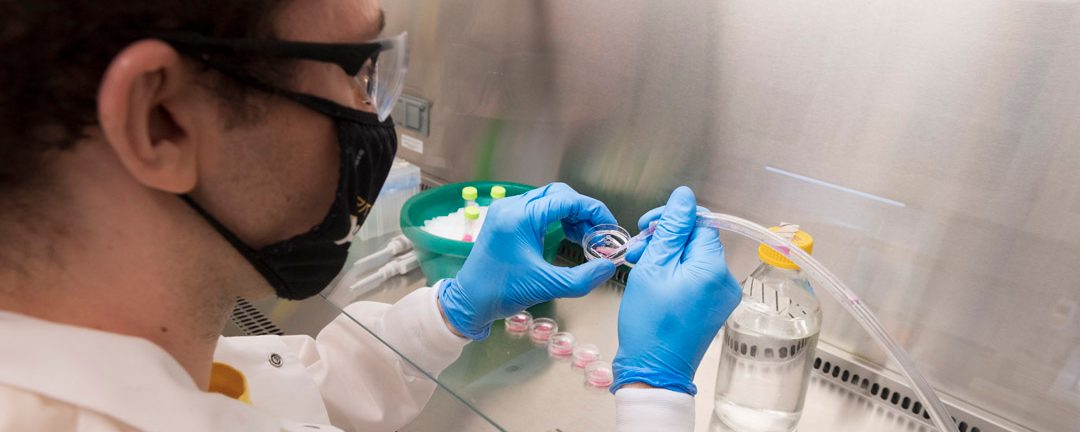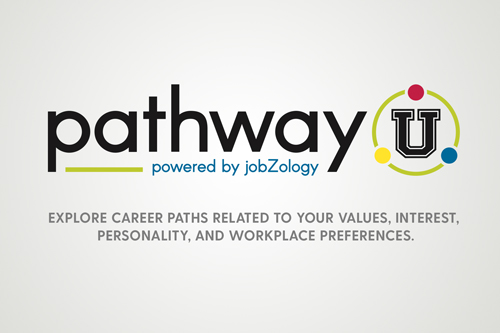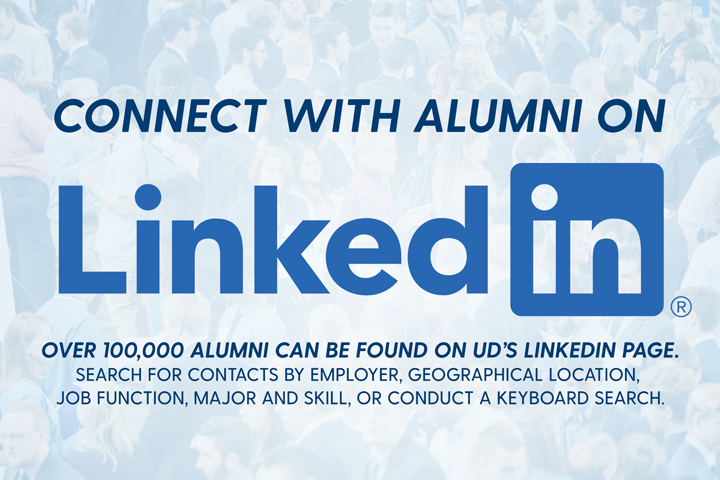
Career Communities

ENGINEERING & TECHNOLOGY
Explore potential careers and develop industry-specific skills for success in the Engineering & Technology Community. The Career Center offers individual counseling, job and internship resources, networking events and professional development opportunities to help students succeed. Below is a quick snapshot of relevant industries, career outlooks, community-specific resources and related Registered Student Organizations (RSOs) to help direct students along their career path in the Engineering & Technology Community. The possible engineering career pathways can be divided into five major categories, as engineers design and implement many of the systems we take for granted in our daily lives: technical, biological, environmental, industrial, and energy.

OCCUPATIONS & BROAD INDUSTRIES:
- Aerospace Engineering
- Application Development
- Automotive Engineering
- Biomechanical Engineering
- Biomedical Engineering
- Chemical Engineering
- Circuit and Systems Design
- Civil Engineering
- Cloud Security Systems
- Composite Material Development
- Computer Engineering
- Computer Programming and Coding
- Construction Engineering
- Construction Management
- Cryptocurrency
- Cybersecurity
- Data Scientist
- Database Architecture Management
- Digital Forensics and Malware Analysis
- Energy Systems Engineering
- Environmental Engineering
- Environmental Remediation
- Geotechnical Engineering
- Information Security
- Infrastructure Engineering
- Manufacturing
- Medical Device Design
- Nanotechnology
- Nuclear Engineering
- Pharmaceutical Manufacturing
- Process Engineering
- Project Management
- Public Works Administration
- Quality Control Engineering
- Renewable Energy Systems
- Research and Development
- Robotics
- Safety and Compliance
- Software Development and Engineering
- Structural Engineering
- Sustainability
- Transportation Engineering
- Urban Planning
- Water Resources Engineering
- Web Design and Development
GENERAL RESOURCES:
- Biospace: Life Sciences Industry News & Career Hub
- Career Cornerstone Center
- Computing Research Association
- EngineerJobs.com
- National Science Foundation Funding Opportunities
- NIH: Office of Intramural Training & Education
- Pathwaystoscience.org: Summer Research Opportunities
- Revelry
- Science Careers
- Firsthand
- Washington Internships for Students of Engineering (WISE)
- Whoishiring.io: Worldwide Job Posts
- Zippia.com
TECHNOLOGY:
BIOMEDICAL:
CHEMICAL AND BIOMOLECULAR
MECHANICAL:
ELECTRICAL:
CIVIL/ENVIRONMENTAL:
- American Society of Civil Engineers (ASCE) Career Connections
- CEEcareers.com
- Environmental Career Opportunities (access via Handshake)
- NCSEA Jobs Board
CHEMICAL:
Opportunities at UD
- Summer Scholars - Application deadline is usually March 1.
- Summer Fellows - Application deadline is usually April 30.
- INBRE (IDeA Network of Biomedical Research Excellence) - Application deadline is usually March 1.
Typical components of REU applications:
CV/Resume
Prepare a good, well-crafted CV or resume. Receive feedback from the Career Center through Drop-In Hours and by uploading your resume for approval on Handshake. For industry-specific feedback, ask a faculty member to review your document.
Suggestion: Every semester, plan on adding at least one bullet point to your CV or resume. Volunteer to do some research even if it is only for an hour per week. Eventually, this will grow and give you content for publications and presentations.
An essay (or a research statement)
If needed for the process, read the position advertisement that you wish to apply for carefully, and identify if they are looking for anything specific in the essay or statement. If no instructions are given, you may consider covering the following:
- Why do you want to apply for the position, or what do you wish to accomplish from participating in the research program? (Possible answers: prepare for graduate school, solve scientifically important problems, apply knowledge gained from coursework to solve real-world problems or to gain research experience.)
- What prior experience do you have with research? If you haven't participated in research before, include relevant course projects or scientific methods with which you are familiar.
- What are your research interests? If you already have research interests, describe them and connect them to topics mentioned in the position description. It is okay to be flexible in describing research interests so that you maximize your chances of getting the position and give yourself an opportunity to learn new things. You may consider seeking advice from a faculty member in your department.
Recommendation letter
Typically students ask course instructors for letters of recommendation. They can speak to your work ethic, but can't always speak to your research experience. To stand out among applicants, volunteer in labs and talk with faculty about your research interests. Once you have some experience, you can ask your research supervisors for letters of support.
Note: For UD Summer Scholars and Fellows programs, you should contact a professor with whom you want to work to discuss a research topic. You will need a letter from that professor to support your application. You may wish to contact multiple professors to see what opportunities are available.
- Aero Society of Automotive Engineers (ASAE)
- Alpha Omega Epsilon (AOE)
- American Concrete Institute (ACI)
- American Institute of Chemical Engineers
- American Institute of Steel Construction
- American Society of Civil Engineers (ASCE)
- American Society of Highway Engineers (ASHE)
- American Society of Mechanical Engineers (ASME)
- Assistive Medical Technologies (AMT)
- Association for Computing Machinery (ACM)
- Association for Computing Machinery-Women (ACM-W)
- Biomedical Engineering Society (BMES)
- Chi Epsilon
- Computer Animation and Game Design
- CS + Social Good
- Deep Roots STEM Outreach
- Engineering Ambassadors
- Engineers Without Borders
- Environmental Engineering Student Association (EESA)
- Eta Kappa Nu
- Institute of Electrical & Electronics Engineers (IEEE)
- Institute of Transportation Engineers
- Linux Users Group (LUG)
- Materials Research Society
- National Society of Black Engineers (NSBE)
- National Society of Professional Engineers
- Resilient Builds
- Robotics Club
- Sigma Phi Delta (SPD - COE Fraternity)
- Society for the Advancement of Material & Process Engineering (SAMPE)
- Society of Asian Scientists and Engineers (SASE)
- Society of Automotive Engineers
- Society of Hispanic Professional Engineers (SHPE)
- Society of Pharmaceutical Engineers
- Society of Women Engineers (SWE)
- Tau Beta Pi Engineering Honors Society
- Women in ECE
To find out more about these RSOs and how to get involved, visit Student Central.
- American Academy of Environmental Engineers
- American Association of Engineering Societies
- American Chemical Society
- American Institute of Aeronautics and Astronautics
- American Institute of Chemical Engineers
- American Railroad Engineering and Maintenance of Way Association
- American Society of Civil Engineers (ASCE)
- American Society of Mechanical Engineers (ASME)
- Association for Computing Machinery (ACM)
- Biomedical Engineering Society (BMES)
- The Computing Research Association on Widening Participation in Computing Research (CRA-WP)
- Institute of Electrical and Electronics Engineers (IEEE)
- Institute of Industrial Engineers
- Materials Research Society
- National Society of Black Engineers
- National Society of Professional Engineers
- Out in Science, Technology, Engineering, and Mathematics (oSTEM)
- Society of Automotive Engineer
- Society of Hispanic Professional Engineers
- Society of Women Engineers
Fundamentals of Engineering (FE) Exam
The FE exam is generally your first step in the process to becoming a professional licensed engineer (P.E.). It is designed for recent graduates and students who are close to finishing an undergraduate engineering degree from an EAC/ABET-accredited program.
The FE exam is administered year-round at NCEES-approved Pearson VUE test centers, and is computer-based. Learn about alternative item types (AITs) at NCEES.
The FE Exam includes 110 questions, is six hours long and includes:
- Non-disclosure agreement (2 minutes)
- Tutorial (8 minutes)
- Exam (5 hours and 20 minutes)
- Scheduled break (25 minutes)

Principles and Practice of Engineering (PE) Exam
The Principles and Practice of Engineering (PE) exam tests for a minimum level of competency in a particular engineering discipline. It is designed for engineers who have gained a minimum of four years’ post-college work experience in their chosen engineering discipline.

CONNECT WITH YOUR COMMUNITY TODAY
- Log in to your Handshake account.
- Choose "Personalize Handshake" at the top of your home screen.
- Choose from 8 different industry-focused communities.
- Start learning about jobs, internships, and events that interest you.
TOP TEN EMPLOYERS:
- AECOM
- Air Products & Chemicals, Inc.
- DuPont
- ExxonMobil
- JPMorgan Chase & Co.
- Merck & Co., Inc.
- Pennoni Associates, Inc.
- Siemens Healthineers
- The Whiting-Turner Contracting Co.
- W. L. Gore & Associates, Inc.
The UD Career Center is part of the Division of Student Life, which advances equity and inclusion, deepens student learning and drives holistic development through education, experiences and communities.


